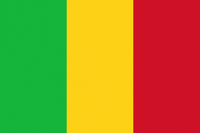Mali Visa

Available Services
GulfVisa is an accredited UK visa agent which helps obtain visas for individuals travelling to Mali. Though Mali isn't widely seen as a popular destination, due to the country’s ongoing security issues, many people still need to visit for a variety of essential reasons. However, most visitors — including UK citizens — must possess a visa to enter.
The GulfVisa team is aware of just how tiresome and difficult it can be to apply for travel documentation, particularly when this time is better spent on planning your trip. But with our one-stop solution, you can sit back and relax, as we take care of everything for you
Please note: Our visa services do not extend to those wishing to come to the UK from Mali.
How to apply for a Mali visa
- Look at the guidelines - Carefully read all the application details for your chosen visa.
- Organise your documents - Gather everything you need, such as passport photos, flight booking confirmations and a Mali visa application form.
- Buy your visa - You can pay for your Mali visa online. We accept debit and credit cards, as well as Apple Pay.
- Submit your application - You can either post your application to GulfVisa or drop it off in person at our office in Mayfair, London. We typically turn applications around in six working days, though this doesn’t include delivery times.
Mali Visa Cost
| Type of Visa | Validity | Fees GBP (£) |
|---|---|---|
| Business Visa | Standard: Completed within ten working days |
From £269.00 |
| Tourist Visa | Standard: Completed within ten working days |
From £269.00 |
Travel to Mali - A mini guide
Considering its history of political turmoil, Mali isn’t on many people’s must-visit lists. But those who do travel there will find more than enough to do and see in this intriguing country.
Mali's Culture
Mali’s population is made up of various sub-Saharan ethnic groups, with the largest being the Bambara (36.5%). Alongside the Soninké, Khassonké, and Malinké groups, they form the broader Mandé group, which constitutes around 50% of Mali's population. While each individual group is distinct, common features of Mandé culture include practising Islam, reciting the Epic of Sundiata oral history, and making art such as jewellery and carvings.
French is Mali’s official language, but there are also over 40 African tongues spoken by the country’s various ethnic groups. Around 80% of the population can converse in Bambara, making it an important lingua franca.
As 90% of Malians are Muslim, many Islamic celebrations are also public holidays, including Korité, the Prophet Muhammad’s birthday and the Prophet’s Baptism. Other widely-celebrated events include Fête des Masques, which is a masked memorial to the dead Dogon villagers, and a celebration of the harvest. Another is The Cattle Crossing, where herders bring cattle from the grazing lands to the river at Diafarabe for competitions.
Mali's Economy
Mali has an undiversified, low-income economy, and has traditionally been heavily reliant on agriculture. However, in 2019 the country recorded 5% real GDP growth, largely due to its thriving gold and cotton industries. In the future, Mali’s potential for economic expansion will rely on these sectors, as well as its mining and livestock industries.
Mali's most popular destinations
Mali’s most iconic destination is undoubtedly the ancient city of Timbuktu, which is also a UNESCO World Heritage Site. Its top sights include the stunning Djinguereber and Sankoré mosques, Heinrich Barth’s house and the Grand Marché, a two-story market offering magnificent views over the city and surrounding deserts.
Mount Hombori is the highest point in the country at 1,153 meters and can be marvelled at from afar, or for those hardy enough to do so, climbed. The surrounding area is also full of unique fauna such as rock hyrax, olive baboons and more. Mali is also home to the Boucle du Baoulé National Park, which is populated by elephants, lions and hyenas, as well as prehistoric rock art and tombs.








